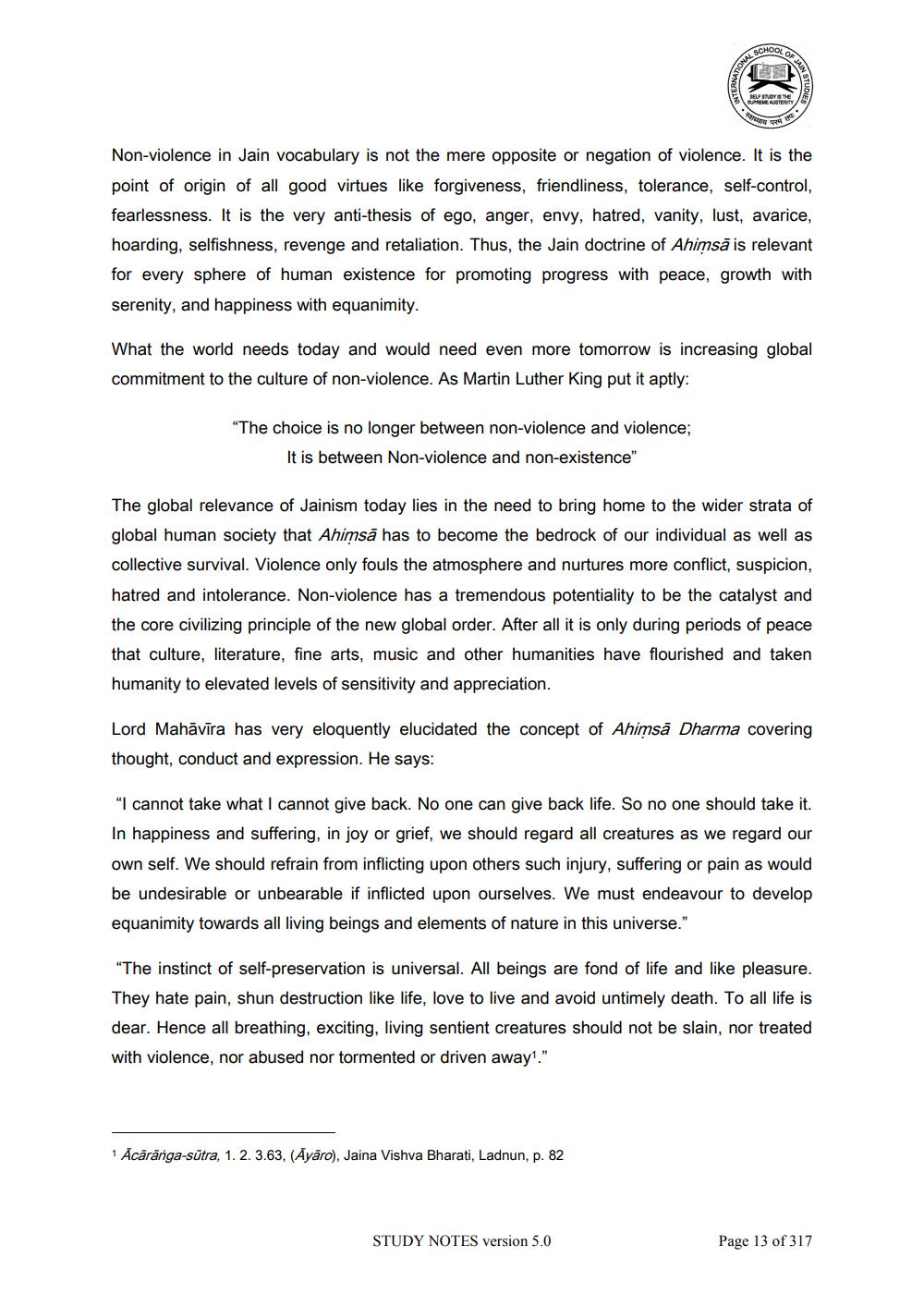________________
Non-violence in Jain vocabulary is not the mere opposite or negation of violence. It is the point of origin of all good virtues like forgiveness, friendliness, tolerance, self-control, fearlessness. It is the very anti-thesis of ego, anger, envy, hatred, vanity, lust, avarice, hoarding, selfishness, revenge and retaliation. Thus, the Jain doctrine of Ahimsā is relevant for every sphere of human existence for promoting progress with peace, growth with serenity, and happiness with equanimity.
What the world needs today and would need even more tomorrow is increasing global commitment to the culture of non-violence. As Martin Luther King put it aptly:
"The choice is no longer between non-violence and violence;
It is between Non-violence and non-existence"
The global relevance of Jainism today lies in the need to bring home to the wider strata of global human society that Ahimsa has to become the bedrock of our individual as well as collective survival. Violence only fouls the atmosphere and nurtures more conflict, suspicion, hatred and intolerance. Non-violence has a tremendous potentiality to be the catalyst and the core civilizing principle of the new global order. After all it is only during periods of peace that culture, literature, fine arts, music and other humanities have flourished and taken humanity to elevated levels of sensitivity and appreciation.
Lord Mahāvīra has very eloquently elucidated the concept of Ahimsa Dharma covering thought, conduct and expression. He says:
"I cannot take what I cannot give back. No one can give back life. So no one should take it. In happiness and suffering, in joy or grief, we should regard all creatures as we regard our own self. We should refrain from inflicting upon others such injury, suffering or pain as would be undesirable or unbearable if inflicted upon ourselves. We must endeavour to develop equanimity towards all living beings and elements of nature in this universe."
“The instinct of self-preservation is universal. All beings are fond of life and like pleasure. They hate pain, shun destruction like life, love to live and avoid untimely death. To all life is dear. Hence all breathing, exciting, living sentient creatures should not be slain, nor treated with violence, nor abused nor tormented or driven away."
1 Acārārga-sūtra, 1. 2. 3.63, (Ayaro), Jaina Vishva Bharati, Ladnun, p. 82
STUDY NOTES version 5.0
Page 13 of 317




